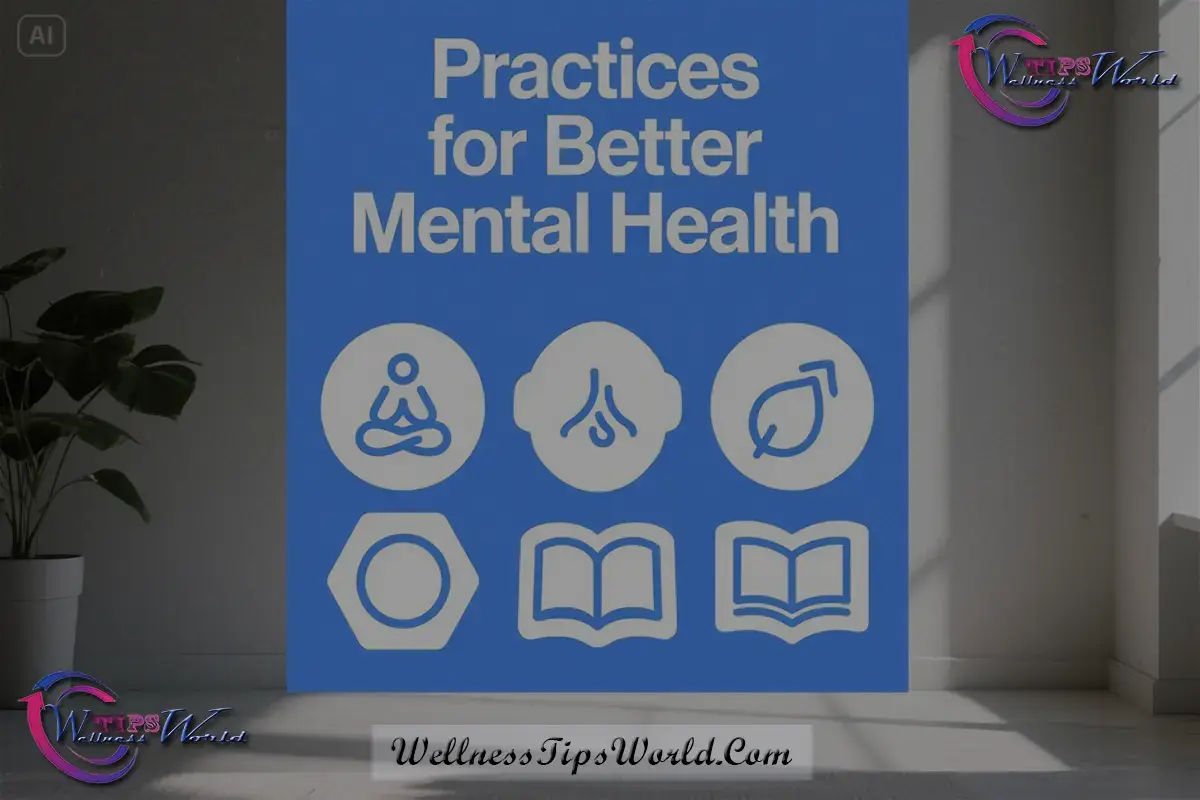5 Simple Practices for Better Mental Health
-
94
- 14 May, 2025

In today’s high-speed world, prioritizing mental health is more important than ever. Incorporating simple daily habits can lead to significant improvements in emotional well-being. This article explores five straightforward practices—mindfulness, regular exercise, adequate sleep, balanced nutrition, and social connections—that can enhance mental health.
1. Practice Mindfulness
Mindfulness is the practice of staying fully engaged in the present, observing your thoughts and emotions without criticism. It can help lower stress, lift your mood, and enhance your overall sense of well-being.
Benefits of Mindfulness
- Stress Reduction: Mindfulness supports stress management by encouraging a state of calm and relaxation.
- Enhanced Emotional Well-being: It contributes to a positive outlook and emotional stability.
- Improved Focus: Consistent practice can improve focus and boost mental clarity.
How to Incorporate Mindfulness
- Meditation: Dedicate a few minutes daily to meditate, focusing on your breath and being present.
- Deep Breathing: Practice deep breathing exercises to center yourself during stressful moments.
- Mindful Activities: Engage in activities like walking or eating slowly, paying full attention to the experience.
2. Engage in Regular Exercise
Physical activity is not only beneficial for the body but also plays a vital role in mental health. It releases endorphins, natural chemicals in the brain that enhance mood and alleviate pain.
Benefits of Regular Exercise
- Mood Boost: Engaging in physical activity can help alleviate the symptoms of anxiety and depression.
- Stress Reduction: Physical activity lowers stress hormones, promoting relaxation.
- Improved Sleep: Regular exercise contributes to better sleep quality, which is essential for mental health.
Incorporating Exercise into Your Routine
- Find Enjoyable Activities: Choose exercises you enjoy, such as walking, cycling, or dancing, to make it sustainable.
- Consistency: Aim to engage in at least 30 minutes of moderate exercise on most days of the week.
- Samveda Care
- Social Engagement: Participate in group activities or classes to combine exercise with social interaction.
3. Ensure Adequate Sleep
Quality sleep is fundamental to mental health. It affects mood, energy levels, and cognitive function.
Ollato
Importance of Sleep
- Mood Regulation: Adequate sleep helps in managing emotions and reducing irritability.
- Cognitive Function: Proper rest enhances memory, concentration, and decision-making abilities.
- Physical Health: Sleep supports immune function and overall physical health, which are linked to mental well-being.
Tips for Better Sleep
- Establish a Routine: Stick to a regular sleep routine by going to bed and waking up at the same time daily to keep your internal body clock in sync.
- Create a Restful Environment: Ensure your bedroom is cool, dark, and quiet.
- Limit Screen Time: Avoid electronic devices before bedtime, as they can interfere with sleep quality.
4. Maintain a Balanced Diet
What you eat significantly impacts your mental health. A nutritious diet supports brain function and emotional well-being.
Marinas Clinic
Benefits of a Healthy Diet
- Mood Stabilization: Consuming foods rich in nutrients can help regulate mood swings.
- Energy Levels: A balanced diet provides sustained energy, reducing fatigue and irritability.
- Cognitive Support: Nutrients like omega-3 fatty acids are essential for brain health.
Components of a Mental Health-Friendly Diet
- Fruits and Vegetables: Rich in vitamins and minerals that support overall health.
- Whole Grains: Provide steady energy and support blood sugar levels.
- Lean Proteins: Essential for neurotransmitter function and mood regulation.
- Limit Processed Foods: Reduce intake of foods high in sugar and fat, which can negatively affect mood.
5. Foster Social Connections
As social creatures by nature, nurturing relationships is essential for maintaining good mental health. Social interactions provide emotional support, reduce feelings of loneliness, and enhance life satisfaction.
Importance of Social Connections
- Emotional Support: Friends and family offer a network to share feelings and experiences.
- Reduced Risk of Mental Health Issues: Strong social ties can lower the risk of depression and anxiety.
- Increased Longevity: Positive relationships are associated with longer, healthier lives.
Ways to Connect with Others
- Regular Communication: Schedule regular calls or meetings with friends and family.
- Join Groups or Clubs: Participate in community activities that interest you.
- Volunteer: Helping others can provide a sense of purpose and connect you with like-minded individuals.
Incorporating these five simple practices—mindfulness, regular exercise, adequate sleep, balanced nutrition, and social connections—into your daily routine can lead to significant improvements in mental health. Remember, maintaining mental well-being is a continuous journey that involves consistent effort and self-compassion.










